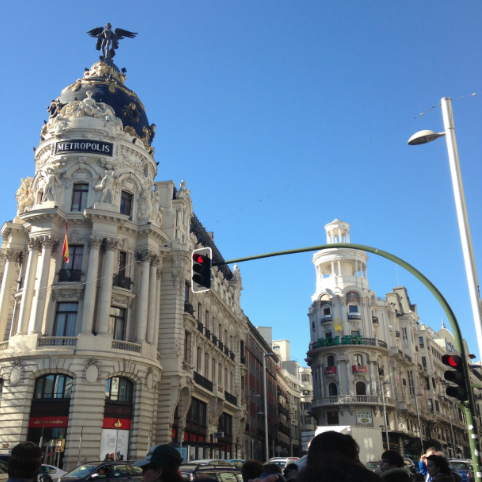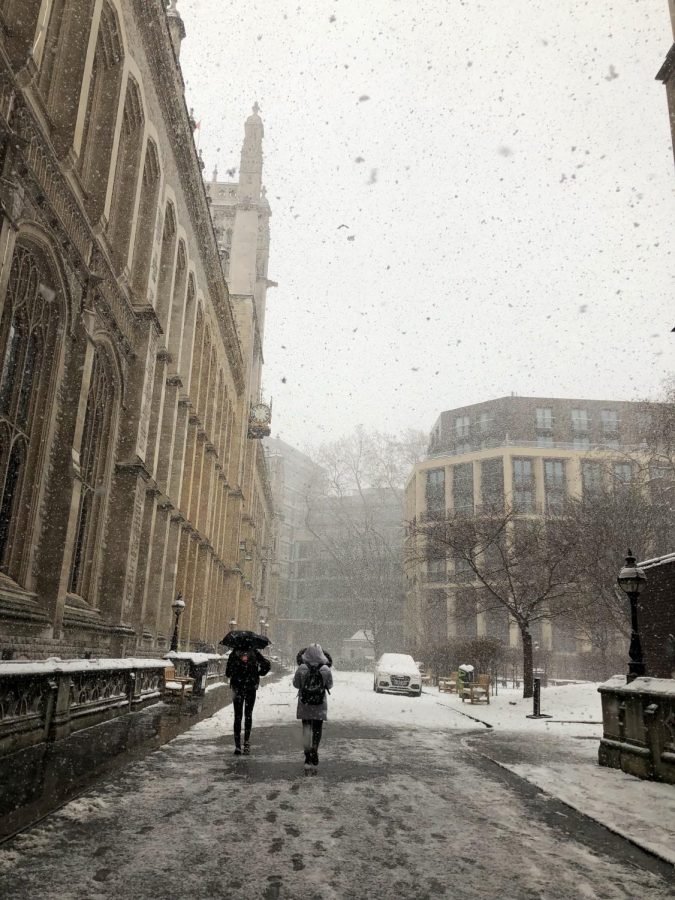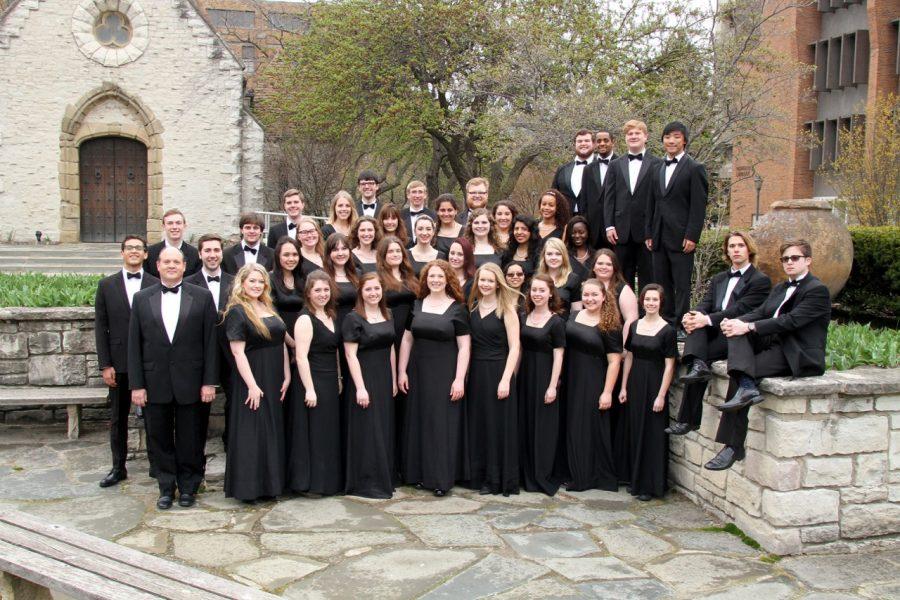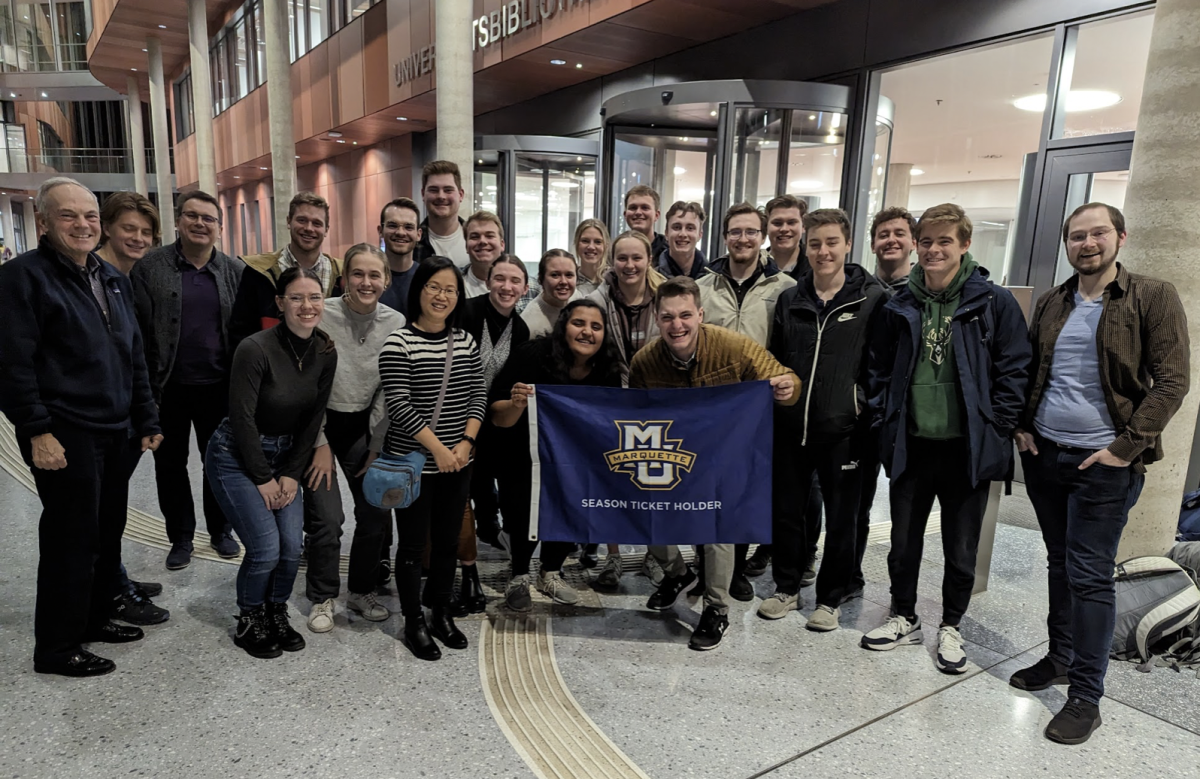Regardless of what Americans think they know about the British education system, as a whole, Americans are wrong.
My personal idea of British education was Cambridge boys walking around in suit jackets and leather school bags discussing Wordsworth and Keats before catching a pint at the local pub.
(Ok, so my idea was slightly – i.e. a lot – more realistic than that, but still.)
English Overview

English university (or Uni as its affectionately referred to here) is much different from my idea of ol’ Eton boys running around in tweed jackets (note: I have seen several tweed jackets on professors and students alike at King’s).
Despite the obsession with tweed, British – or perhaps more accurately, English – university students resemble American university student in many ways. They are usually 18 or 19 when they start Uni, just like freshmen in college. Since I share a flat (see: apartment) with a bunch of first years, I can promise they are very much like freshmen.
Unlike in the U.S., however, these freshmen know they only have two more years ahead, not three. The English Uni system is usually a three-year system, unless you’re doing something fancy like Law or Medicine (yeah, you don’t need pre-law or pre-med at this level, they have “A Levels” for that).
But if you’re studying English, like me, you go for three years to get a Bachelor’s degree. One extra year if you want a Master’s, and three – five extra years if you want a Ph.D. Pretty cool system, right?
It gets better. The universities in the UK, because of some subsidized education scheme I still don’t understand, cost up to £9,000 (about $15,300) per year. All I understand from such a scheme (and my conversation with one of my roommates) is that everyone is upset about the £9,000/year deal, and grants are awarded much like in the U.S., based on one’s income bracket and median household earnings.
That means that even at some of the most expensive universities, an English student is paying $45,900 for tuition (not including accommodation) to a first-rate institution. At many first-rate institutions in the U.S., that wouldn’t even cover one year’s tuition and fees out of the four required. Marquette’s total bill is inching toward such numbers annually, although still far off the $45,000 mark.
Perhaps the best part of the English Uni system is the content structure. Students study one program for all three years. Meaning, that if you’re an English Literature student, you only take Literature and English courses. No core classes, no Jesuit ideals of education here. It also requires a lot more general reading for such classes.
(For instance, I was required to read Sartre for a First World War Literature course this week. I don’t think I’ve ever read anything so seemingly off-topic that actually made complete sense once the instructor explained why we read it.)
It was interesting to do more than a close reading of something, which I’m afraid I’ve gotten quite used to over the years in the U.S.
King’s v. Marquette
So far, during my one week here, there have been some telltale differences in how the universities operate. For starters, King’s College London isn’t a university at all. It’s part of a system known as the University of London (kind of like The University of California or the University of Wisconsin) with a bunch of different colleges. King’s College (KCL) is one of them, as is the London School of Economics, University College London and others.
Other than the administrative distinction and the fact that I can use all of their libraries and gyms, KCL and Marquette seem to operate on the same level.
More exciting is the class schedule, or “module timetable” at KCL. It’s the secret to never going to class!:
Each module (class) meets about 2 hours per week, meaning a full schedule of 4 classes consists of 8 hours of class. Per week. I’ve spent 8 hours of ONE DAY in class at Marquette. ONE DAY = ONE WEEK. ENOUGH SAID.
With all that free time, students are expected to read. A lot. Students are given a “bibliography” at the beginning of term (i.e. this week) with about 50-100 books, some required reading (about 5-10) and the rest optional.
Some departments, like the English department, will be very nice and copy out the required and optional reading into a very large stack of copied material called a “Coursepack” which are sold for about $5 a piece. It is much cheaper than buying or (worse) copying all of the reading.
With a library that looks more like Hogwarts than a piece of Swiss cheese or a fake castle, it’s not hard to try and do some of the course reading here. (Really, even the inside is like Hogwarts; you just can’t take photos!) And with all of the free time, one’s education can extend as one tutor put it, “beyond the classroom and within the city!”
(For more photos, multimedia and extra posts, visit pondhoppassport.wordpress.com!)









